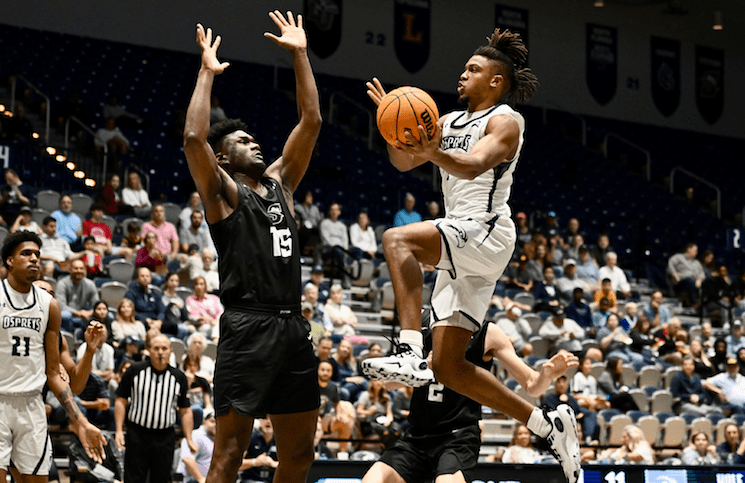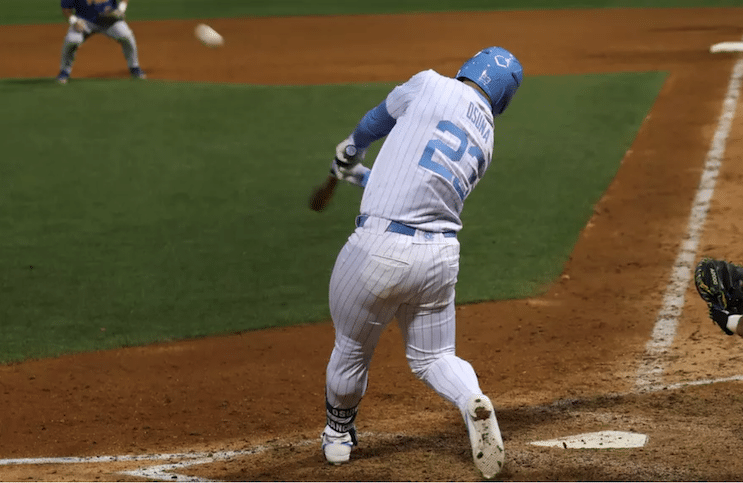
Tennessee basketball made a major splash in the transfer portal on Friday evening when Chaz Lanier committed to the Vols over BYU and Kentucky.
Rick Barnes and his staff long coveted the Nashville native and filled a major void on the Vols’ roster ahead of the 2024-25 season.
What does Lanier’s commitment mean for Tennessee basketball and what does he bring the Vols? Taking a look here.
Why Chaz Lanier’s Commitment Is So Significant
Anytime Tennessee beats out Kentucky basketball for a kid the Wildcats desperately wanted then it is a really big deal and shows the health of where the Vols’ program is at.
But the real benefit is the hole Lanier fills on Tennessee’s roster. The Vols had added three transfers to date, adding shooting and versatility on the wing with Darlinstone Dubar and Igor Milicic as well as an elite rim protector with Felix Okpara.
They hadn’t yet added an elite scorer who could create his own shot and that’s what Lanier gives them. Lanier shot very well off the dribble in his breakout season at North Florida. At 6-foot-4, 199-pounds, he has the size and athleticism that should translate to him being able to score at the basket effectively.
Tennessee desperately needed a shot creating shooting guard and that’s what Lanier is. The Vols put all their eggs into the Lanier basket and it paid off. Pairing Lanier with Zakai Zeigler should give Tennessee a stout starting backcourt.
More From RTI: Watch Chaz Lanier’s Highlights At North Florida
Lanier Is An Elite And Efficient Scorer
Tennessee’s newest shooting guard averaged 19.7 points per game last season on just 13 shots per game. Every team North Florida faced was focused on containing Lanier, still he scored at a high clip and didn’t force the issue in a way that hurt his team.
In fact, Lanier was the most efficient offensive player in the country last season according to Synergy. The shooting guard averaged 1.20 points per possession used. That ranked ahead of the likes of Zach Edey, Antonio Reeves and Mark Sears.
Nearly all advanced analytics love Lanier as an offensive player, his effective field goal percentage of 62.9% ranked 26th nationally.
Shooting is what jumps off the table about Lanier, more on that in a moment, but he was also really effective driving to the hoop. Lanier shot 70% on shots at the rim and 55% on every other shot in the paint that wasn’t at the rim.
Lanier Is A Brilliant Shooter
I’ve probably buried the lede here a bit, but the shooting numbers are what’s most exciting about Lanier.
He shot 60% from two-point range (193rd nationally), 43% from three-point range (55th nationally) and 88% from the foul line (48th nationally). And back to the advanced stats, Lanier’s 66.3 true shooting percentage ranked 13th nationally.
Lanier did it while shooting far more than the minimum shots required to qualify. He made 96 three-pointers last season. Dalton Knecht was the only Tennessee player that surpassed that total last season.
Lanier also knocked down jump shots in a myriad of ways, ranking in the 92nd percentile nationally in catch-and-shoot percentage, 97th percentile in off the dribble jumpers, 94th percentile on guarded jumpers and 71st percentile on unguarded jumpers.
What Are The Questions About Lanier?
Anytime a player transfers up a level in competition there are questions about how he will translate. What are they for Lanier?
For starters, Lanier’s senior season was the only one he put up big numbers at North Florida. However, that was mostly due to opportunities as he came off the bench behind all-conference players the year before.
With anyone transferring up a level, how well they finish at the basket is a major question. Finishing over SEC big men is dramatically harder than finishing over A-SUN big men. We won’t know for sure until we see it but we’ve already outlined a few reasons why we don’t think that’s a massive deal.
Lastly is Lanier’s defense. Analytical based site EvanMiya.com graded Lanier out with a poor -1.19 DBPR rating. Defense isn’t a strength for Lanier but he’ll get better in Tennessee’s system and the Vols can hide his issues with Zeigler, Jahmai Mashack and Okpara.
For comparison, Dalton Knecht’s had an even worse -1.41 DBPR rating at Northern Colorado the year before he transferring to Tennessee.




